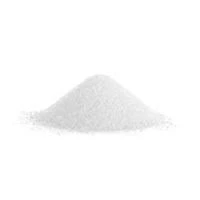
potassium metabisulfite preservative
Understanding Potassium Metabisulfite as a Preservative Applications and Considerations
Potassium metabisulfite, also known as potassium pyrosulfite, is an inorganic compound with the chemical formula K2S2O5. It is widely used as a preservative in food and beverage production, particularly in winemaking and the preservation of dried fruits, due to its effective antimicrobial and antioxidant properties. This article aims to explore the uses, benefits, and considerations regarding the application of potassium metabisulfite as a preservative.
The Chemical Properties and Functionality
Potassium metabisulfite appears as a crystalline, white powder and is highly soluble in water. When dissolved, it releases sulfur dioxide (SO2), which is the active agent responsible for its preservative qualities. Sulfur dioxide acts as an antioxidant, preventing the oxidation of food substances, which can lead to spoilage, discoloration, and the development of off-flavors. Additionally, the compound is effective in inhibiting the growth of spoilage bacteria and yeasts, thereby extending the shelf life of products.
Applications in Food and Beverage Preservation
The primary application of potassium metabisulfite lies in the food and beverage industry. In winemaking, it is used to sterilize fermentation equipment, ensuring that detrimental microorganisms do not spoil the wine. Furthermore, potassium metabisulfite is used to stabilize wine by preventing oxidation and spoilage, resulting in a fresher and more flavorful product.
For dried fruits, a common preservative practice is to treat them with potassium metabisulfite before drying. This process enhances the fruit's color retention and helps maintain its natural flavors and textures. In addition to these uses, potassium metabisulfite is also applied in juices, jams, sauces, and other products where preservation and stabilization are essential.
Benefits of Using Potassium Metabisulfite
potassium metabisulfite preservative

One of the significant advantages of potassium metabisulfite is its effectiveness at relatively low concentrations. This makes it an economical choice for manufacturers looking to extend the shelf life of their products without compromising quality. Additionally, the use of potassium metabisulfite can enhance the overall stability and safety of food products, resulting in reduced food waste, which is increasingly important in today's environmentally conscious market.
It is also worth mentioning that potassium metabisulfite is generally recognized as safe (GRAS) by food safety authorities when used within the recommended limits. This provides assurance to both manufacturers and consumers regarding its application in food preservation.
Health Considerations
While potassium metabisulfite has numerous benefits, it is not without its concerns. Some individuals may experience sensitivities or allergic reactions to sulfur dioxide and sulfites, which can manifest as respiratory issues or skin reactions. This is particularly relevant for asthmatics, who are more susceptible to sulfite-induced allergies. Due to these potential health implications, regulatory bodies require that food products containing sulfites above a certain threshold be labeled accordingly to inform consumers.
Additionally, excessive consumption of potassium metabisulfite can have adverse effects. Therefore, it is essential for manufacturers to adhere to safety guidelines and recommended usage levels to minimize any health risks associated with its consumption.
Conclusion
In summary, potassium metabisulfite serves as a vital preservative in the food and beverage industry, effectively extending the shelf life of products while maintaining their safety and quality. Its ability to prevent microbial growth and oxidation makes it a preferred choice among winemakers and food processors. However, awareness of its potential health impacts is crucial, particularly for sensitive individuals. Ultimately, with responsible usage and proper labeling, potassium metabisulfite can play a significant role in modern food preservation practices, contributing to both food safety and sustainability in our ever-evolving culinary landscape.
-
Comprehensive Guide to Acetic Acid as Preservative: Benefits, Uses & Future TrendsNewsNov.24,2025
-
What Is a Food Additive? Global Insights, Applications & Future TrendsNewsNov.24,2025
-
968 Sweetener: The Modern Solution for Health-Conscious SweeteningNewsNov.23,2025
-
Discover the Benefits and Uses of 965 Sweetener (Erythritol) | Tenger ChemicalNewsNov.23,2025
-
961 Sweetener - A Next-Gen Sugar Alternative for Health and IndustryNewsNov.23,2025
-
Understanding 960 Sweetener: The Modern Sugar Alternative for Health and IndustryNewsNov.22,2025
-
Everything You Need to Know About 955 950 Sweeteners – Benefits, Uses, and TrendsNewsNov.22,2025
Hebei Tenger Chemical Technology Co., Ltd. focuses on the chemical industry and is committed to the export service of chemical raw materials.
-

view more DiethanolisopropanolamineIn the ever-growing field of chemical solutions, diethanolisopropanolamine (DEIPA) stands out as a versatile and important compound. Due to its unique chemical structure and properties, DEIPA is of interest to various industries including construction, personal care, and agriculture. -

view more TriisopropanolamineTriisopropanolamine (TIPA) alkanol amine substance, is a kind of alcohol amine compound with amino and alcohol hydroxyl, and because of its molecules contains both amino and hydroxyl. -

view more Tetramethyl Thiuram DisulfideTetramethyl thiuram disulfide, also known as TMTD, is a white to light-yellow powder with a distinct sulfur-like odor. It is soluble in organic solvents such as benzene, acetone, and ethyl acetate, making it highly versatile for use in different formulations. TMTD is known for its excellent vulcanization acceleration properties, which makes it a key ingredient in the production of rubber products. Additionally, it acts as an effective fungicide and bactericide, making it valuable in agricultural applications. Its high purity and stability ensure consistent performance, making it a preferred choice for manufacturers across various industries.





